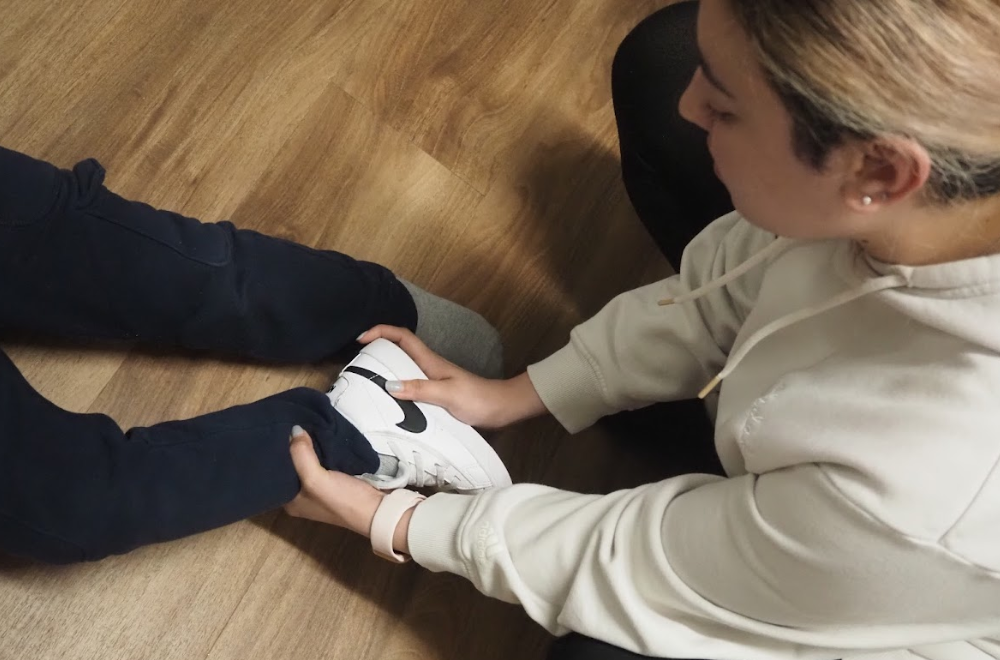
A well-structured home environment can significantly improve learning outcomes for children with autism. By incorporating learning elements that align with your child’s treatment plan at home, achieving progress in behavior, function, and communication can become part of the daily routine.
With your child’s unique learning and developmental needs in mind, here are some highly effective strategies to consider when designing a structured and supportive home atmosphere for your child.
Organize a Predictable Routine
Daily consistency and routine planning provide numerous benefits for many children with autism. First, establishing a predictable daily plan empowers children with a clear sense of direction for the day. This can aid in reducing feelings of anxiety, frustration, and confusion, all of which can interfere with a child’s ability to learn and focus on their current task. Additionally, organizing a straightforward schedule is a wonderful way to promote a sense of autonomy. When children are included in the daily planning process, they are more likely to remain engaged and motivated to participate.
There are several ways you can support a routine plan. Depending on your child’s capabilities and needs, options include:
- Visual schedule boards with pictures, words, or symbols that represent their activities
- Personal daily planners or binders to track the different activities
- Auditory reminders such as a timer or vocal cues when it is time to transition to the next activity
- Any other consistent reminders you can provide that will help to reinforce the routine
Designate Calm & Productive Spaces for Specific Activities
Providing a calm, familiar, and encouraging atmosphere is one of the keys to our successful ABA therapy in Doylestown, PA and the rest of our clinics. Like our colorful, fun, and encouraging clinical atmosphere, designating distraction-free and pleasant spaces for activities can further promote participation and focus.
When planning designated areas, consider the goal of the intended activity. For example, in your break or nap area, consider incorporating soothing colors, favorite toys, and other relaxing elements like a comfy lounge chair or bean bag so your child can relax after a learning session. In your lesson area, do your best to remove bright lights, noisy electronics, and any other elements that might be distracting or irritating.
Replicate the Positive Reinforcement Strategies of ABA Therapy
After your child receives a personalized treatment plan through our ABA services in PA, NJ, CT, and MD, our team will teach you more about the ABA strategies outlined in your child’s specific plan. Among the most effective aspects of ABA therapy, positive reinforcement is one of the key principles. With positive outcomes as the goal, our ABA team will help you identify how you can utilize rewards and words of affirmation to reinforce your child’s progress in communication, behavior, or functional development.
Transform Boring or Challenging Tasks into Play-Based Learning Moments
One of the best ways to keep your child engaged with important activities is through the power of play. Many of our child-led, play-based learning strategies blend practical life skills with enjoyable games and toys for learning and fun combined! Play-based strategies are easily incorporated into many home activities; whether you are tidying up the room or practicing sounds and writing letters, almost any activity can become a play-based learning moment with a little creativity!
Collaborate With Our Supportive ABA Team for Continued Progress
As your child’s needs and goals evolve, our educational ABA therapists will be here to help you refine and improve your home plan. Constant plan assessments and adjustments are crucial to ABA therapy success. We educate our clients on the changes in treatment plans and offer guidance on strategies to incorporate at home.
To learn more about creating an uplifting and encouraging atmosphere at home, don’t hesitate to contact our team at Helping Hands Family. We offer a variety of support services, free autism resources, and will gladly help you schedule an autism assessment if you would like to get started with ABA therapy!
